Bloomington mulls cutting funds for diversity training, 2 cultural programs amid GOP directives
Bloomington mayor Kerry Thomson’s office has proposed cutting $300,000 in city funding previously allocated for diversity, equity, inclusion, and belonging training from next year’s city budget in response to fiscal pressures and the Republican crackdown on DEI.
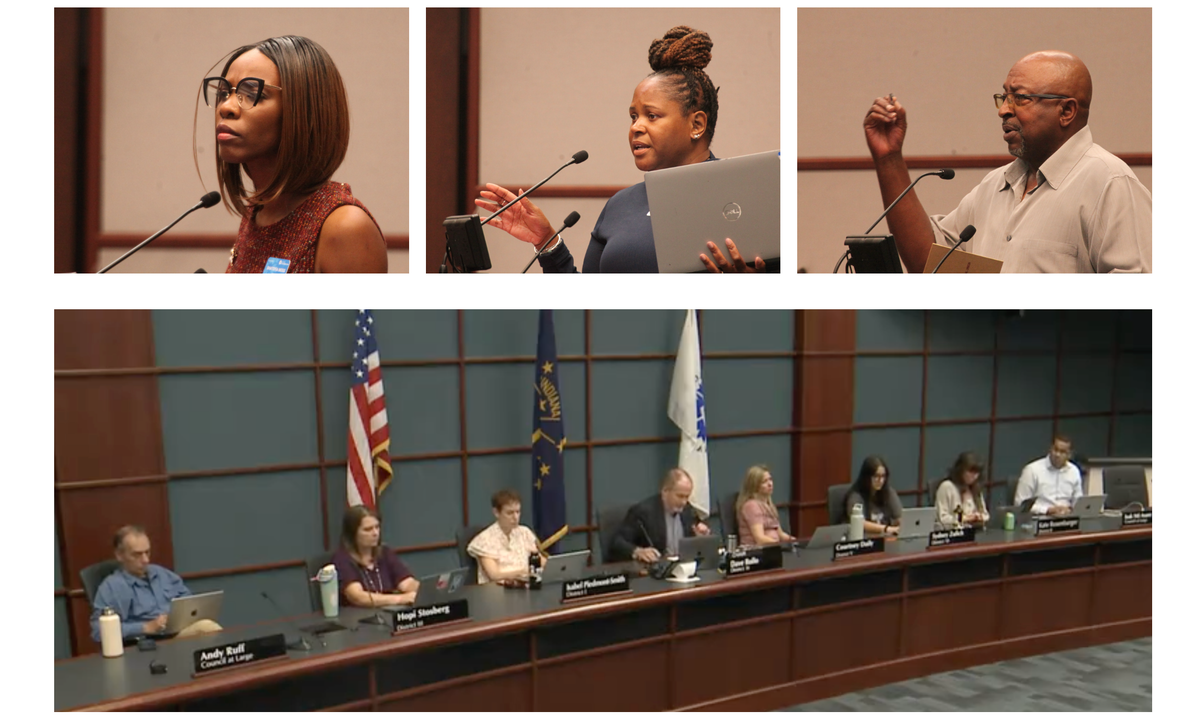
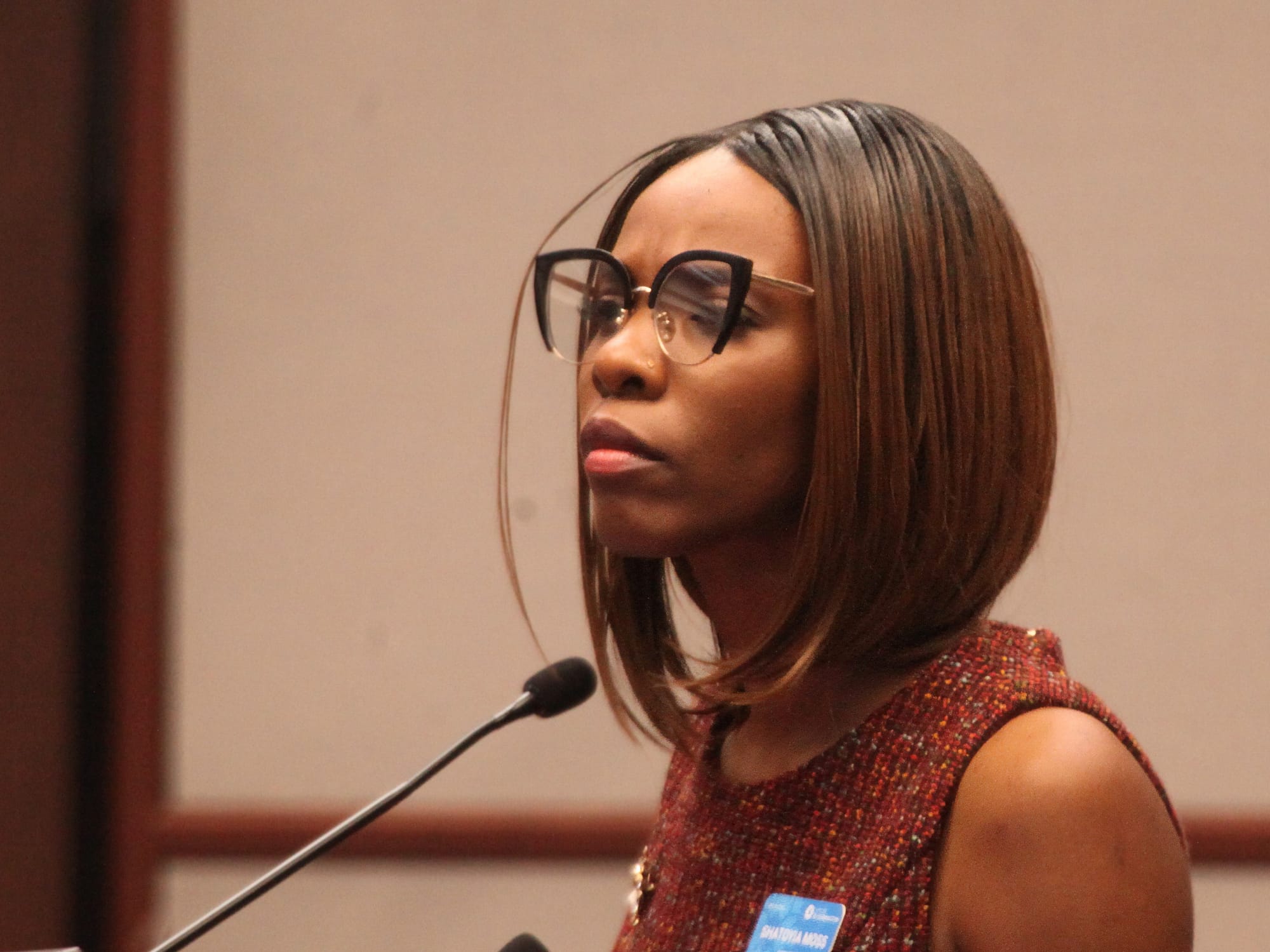
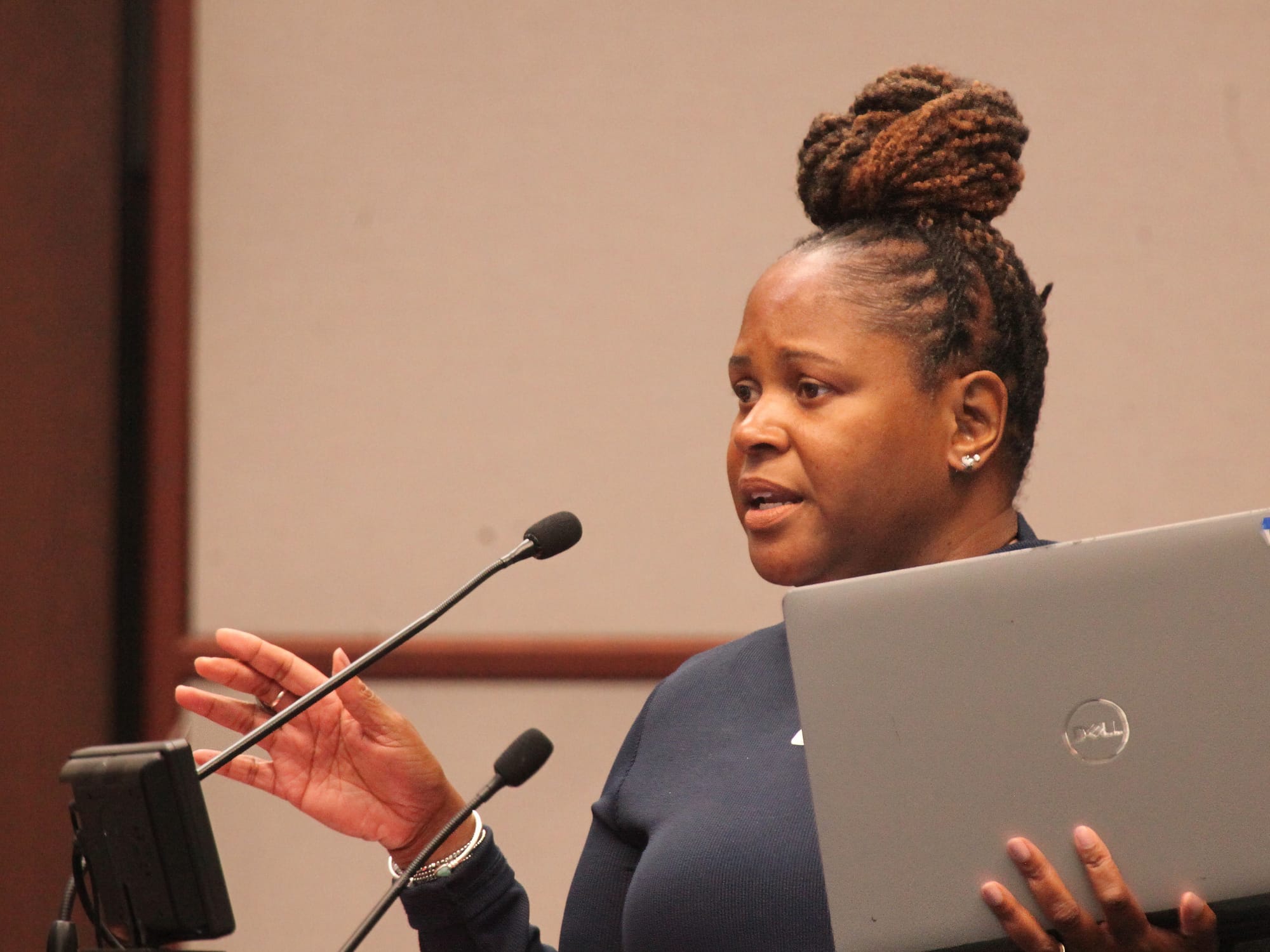
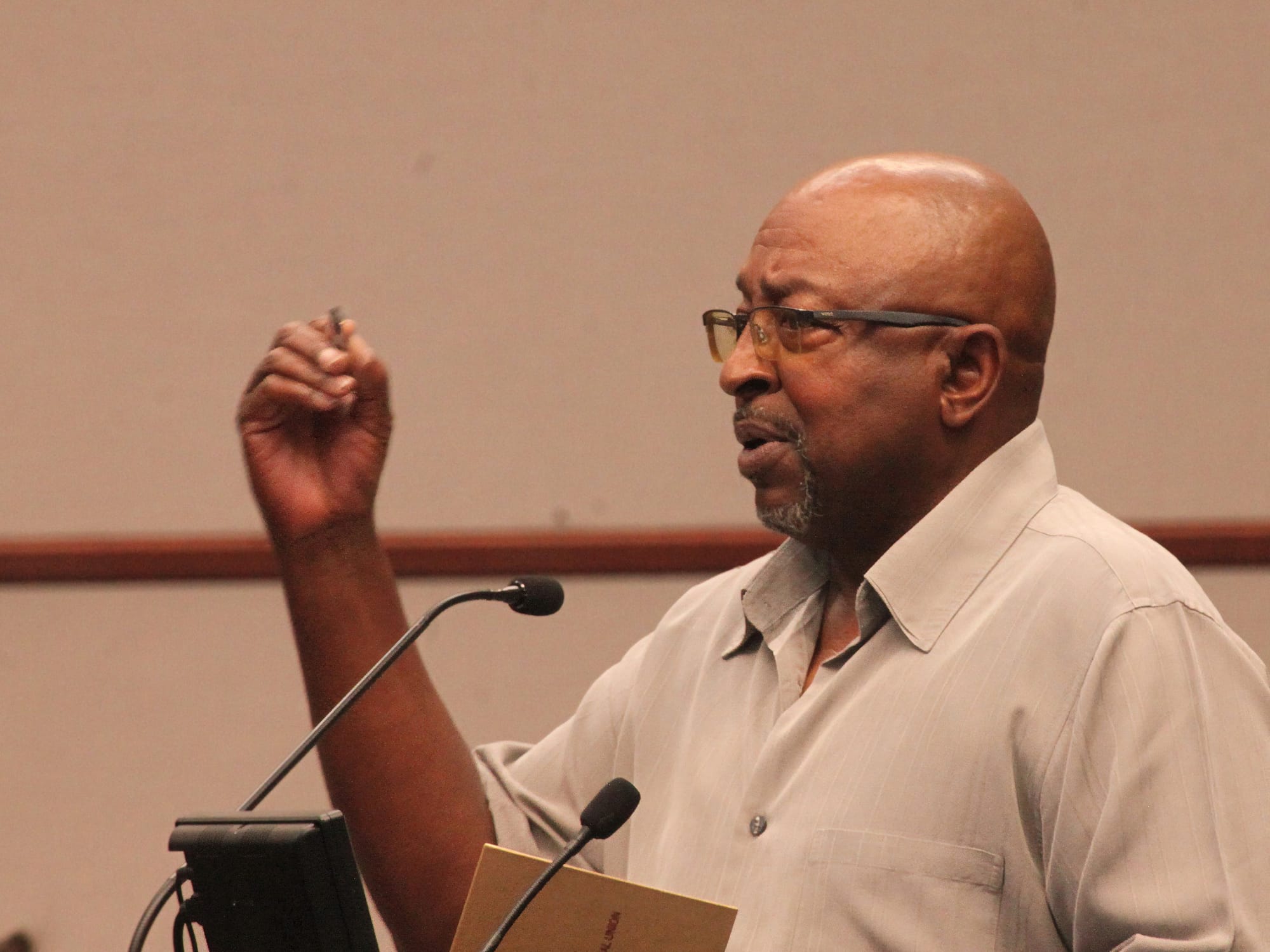
Left: Bloomington CFRD director Shatoyia Moss. Middle: Bloomington HR director Sharr Pechac. Right: Former Bloomington city councilmember Jim Sims. (Dave Askins, Aug. 25, 2025)
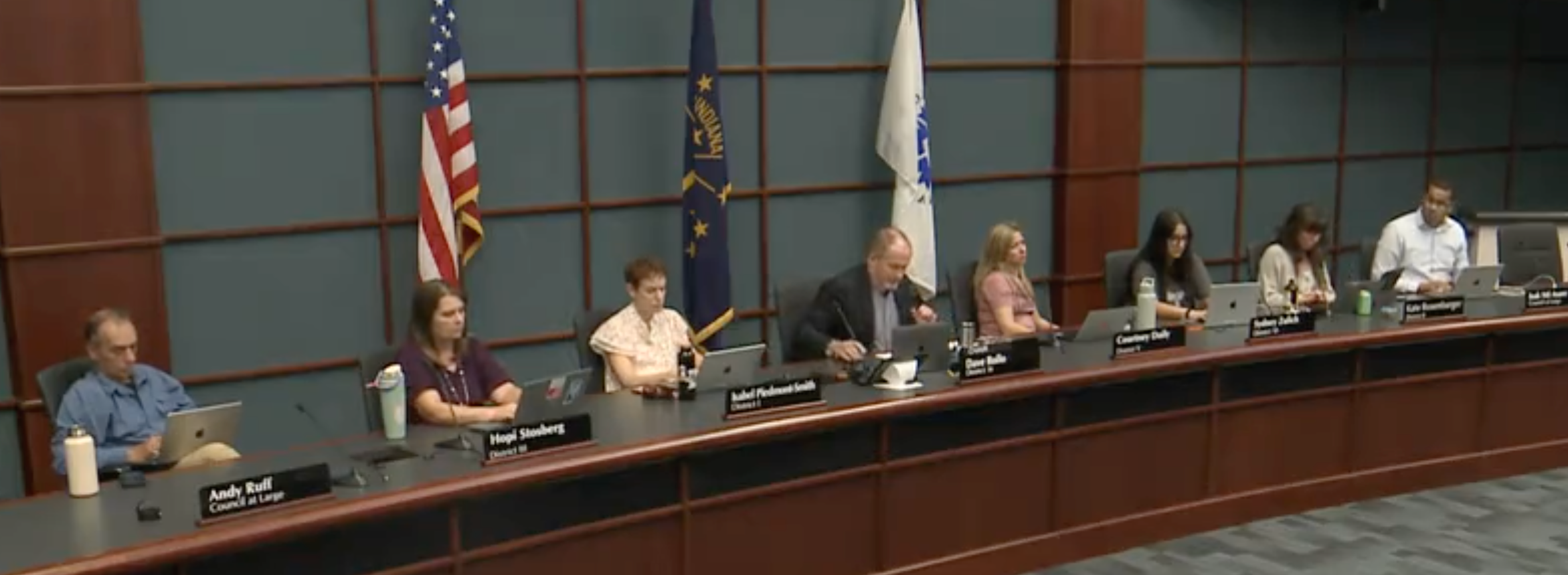
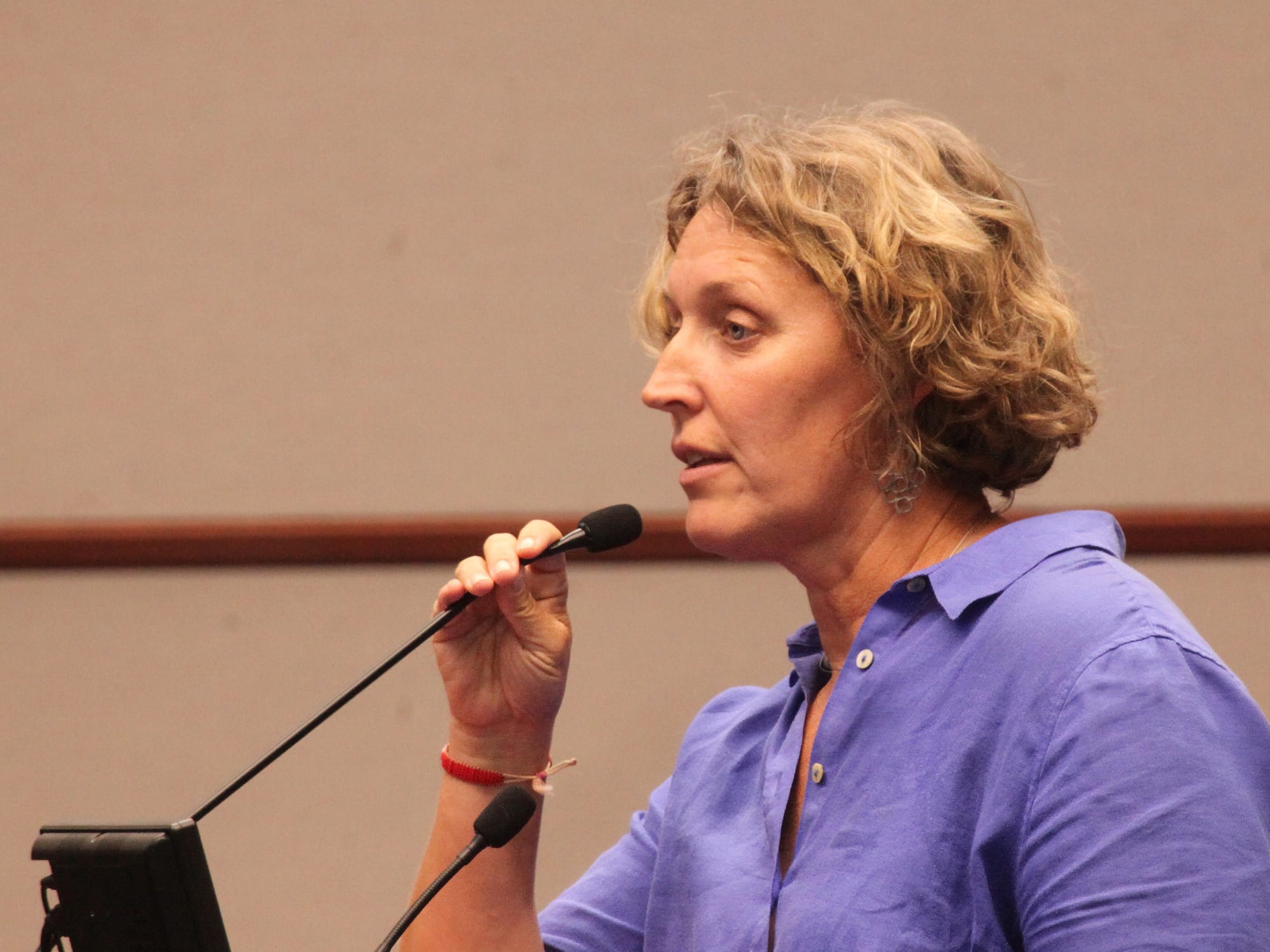
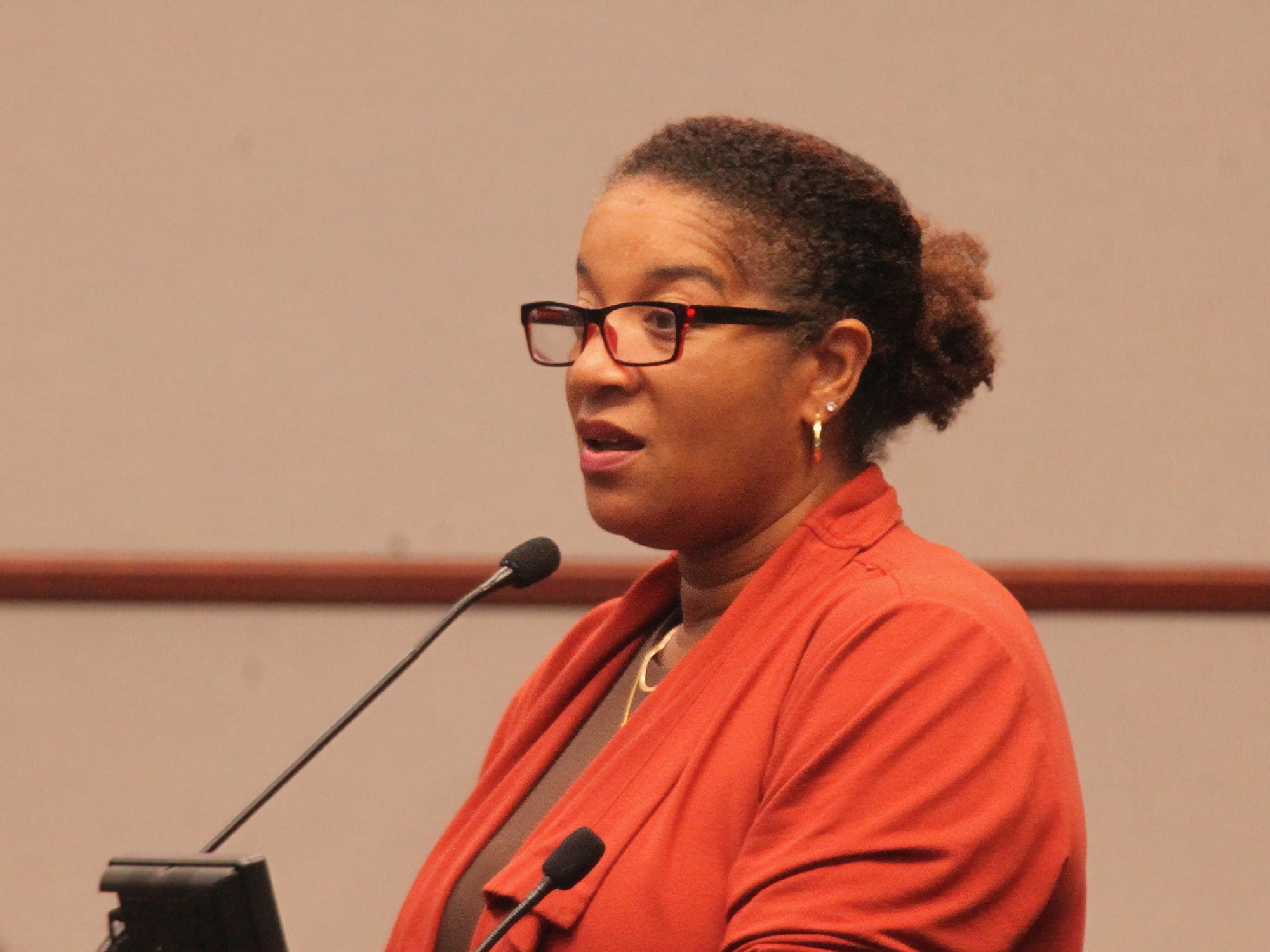
Left: Bloomington mayor Kerry Thomson. Right: Bloomington city clerk Nicole Bolden. (Dave Askins, April 25, 2025)
Bloomington mayor Kerry Thomson’s office has proposed cutting $300,000 in city funding previously allocated for diversity, equity, inclusion, and belonging training from next year’s city budget in response to fiscal pressures and the Republican crackdown on DEI.
The proposal was first made public in a budget memorandum two weeks ago and presented to the city council at a meeting on Monday (Aug. 25). At the meeting, Community and Family Resources Department director Shatoyia Moss also announced the end of two long-standing city programs, which were not included in the budget proposal: the Black y Brown Arts Festival, an annual showcase for local minority artists, and the Latino Outreach Holiday Assistance Program.
The proposed cuts to DEIB training funds drew backlash from residents over the previous weekend, with some accusing Bloomington of caving to pressure or backing away from its commitment to equity. Thomson said eliminating the fund is a nod to the city’s fiscal and legal realities—not a sign of changing values.
“We’ve heard comments suggesting Bloomington is backing away from its commitments to opportunity for all,” Thomson said. “That is simply not the case. What has changed is the fiscal climate, not our values.”
The city is expecting a $1.4 million loss to its revenue this year because of property tax cuts in Senate Enrolled Act 1, which Indiana Gov. Mike Braun signed into law in April. Meanwhile, Republicans in both state and federal government have put diversity programs on the chopping block and branded them as an illegal form of racial discrimination. Braun signed an order slashing DEI in state executive agencies in January. Days later, President Donald Trump signed an executive order barring DEI in federal programs on the first day of his term.
Thomson’s proposed budget drew outrage from Bloomington residents on social media before the Monday hearing. During public comment, former city councilor Jim Sims warned that backing away from DEIB training could put in doubt Bloomington’s reputation as a city that cares about marginalized people—noting that some onlookers might conclude that “if you don’t budget it accordingly, then it has lost value.”
But the proposal to cut the DEIB training allocation may not actually eliminate any existing city programs—because last year’s funds were never used for that purpose.
The $300,000 allocation to CFRD first appeared in Bloomington’s 2024 budget, which was approved under the last year of former mayor John Hamilton’s administration. It was included under “Other Services & Charges”—a broad bucket for CFRD’s operating expenses—and a city budget worksheet describing the fund’s uses included the note “DEIB training.” The funds came from the American Rescue Plan Act.
“To our knowledge no plan, contract, or estimate existed to indicate how that number was arrived at or how those dollars should be spent, and nothing was spent in 2024,” mayor’s office spokesperson Desiree DeMolina wrote in an email.
In 2024, when Thomson’s administration prepared the city’s 2025 budget, $311,550 appeared under the same budget line, but now in the city’s general fund, again with a note that included the phrase “DEIB training.” Once again, it was apparently not spent.
According to DeMolina, the decision to cut the allocation was made after current CFRD director Shatoyia Moss—who assumed the role in mid-2024 and was not involved in preparing the 2025 budget—reviewed the budget line with city controller Jessica McClellan and found no quotes, invoices, requests for information, or other indications of plans to use the funding.
Another chunk of ARPA funds went to the city’s Human Resources department. Roughly $66,000 of that funding was spent on inclusive leadership training, DeMolina wrote.
At Monday’s meeting, McClellan and Moss said that the money remained unspent because CFRD did not have the capacity to run training for city employees, which is overseen by HR, not CFRD.
This year’s proposed budget would return the unspent money to the city’s general fund without keeping it earmarked for DEIB training.
Bloomington officials have been explicit in attributing the cuts to the state and federal crackdowns on DEI, not just a strained city budget. In a July memorandum to the city council, Thomson shot down the possibility of appointing a chief equity officer, citing the risk of losing federal funding. Margie Rice, Bloomington’s corporation counsel, said on Monday that the legal department had strongly advised against pressing forward with DEIB programs as Trump and Braun try to declare them illegal.
“Based on legal advice from my office and from me, we have taken a conservative approach to follow the federal and state guidelines, even though it may not be consistent with our own local policies,” Rice said.
She said there were two reasons her office had advised caution. The city does not want to risk losing all its federal funding. And because city officials must sign certifications of compliance with federal policy in order to receive federal grants, Bloomington could face a False Claims Act lawsuit if the federal government later determines that it is violating policy.
“If anyone wants to take issue with the fact that we’re taking a conservative approach, I think that blame should come directly to the legal department because the advice that we’re giving is to follow the regulations and the rules outlined with receiving federal dollars,” Rice said, arguing that federal funds are crucial to supporting some of Bloomington’s most vulnerable residents.
Bloomington receives federal funding for public transit as well as community development block grants from the Department of Housing and Urban Development, which the city distributes to local nonprofits. The city also receives HUD funding to support vouchers for low-income tenants.
Several council members expressed dismay at the choices before them.
“This is one of those hard moments sitting in this seat and feeling like the options are all crummy,” said city council president Hopi Stosberg.
For some residents, the loss of beloved cultural programs may hit harder than the DEIB funding cuts. And Moss said on Monday that she couldn’t promise that no other cultural events would be discontinued.
“We’re doing this work at a time when grant streams are shrinking,” Moss said. “That means stretching every dollar further, making hard choices, and finding new sources of support.”
The Black y Brown Arts Festival ran for six years until its discontinuation this year and featured food trucks, an arts market, and a performance stage. Held in city parks, the festival usually drew 100 to 200 attendees, Moss wrote in an email. Last year’s Black y Brown festival included 23 vendors and artists and cost about $6,700 to run, but $5,500 of that total was offset by grants, according to Moss.
Moss said at Monday’s council meeting that other events—such as the Women’s Market and la Fiesta del Otoño, which collectively drew more than 90 vendors this year—could “more effectively” fulfill the city’s aim of supporting local artists and small businesses.
Since its founding around 2008, the Latino Outreach Holiday Assistance Program has matched sponsors with Latino and Hispanic children to provide gifts—including books, musical instruments, bicycles, and winter clothes—during the holiday season. Last year, 56 sponsors joined the program to support 64 families, including 106 children.
Moss said during Monday’s meeting that the city continues to offer several other gift exchange programs, and wrote in an email that Bloomington’s Latino outreach coordinator is compiling a list of alternative holiday assistance programs.
At the meeting, physician Claudia Lara, a member of Bloomington’s Commission on Hispanic and Latiné Affairs, spoke during public comment to advocate against the closure of the Holiday Assistance Program. She said that the program was unique in its ability to support Latino families who may otherwise feel isolated or hesitate to access city resources.
“I consider myself more fortunate than many families in our community,” Lara said. “But I also know what it feels like to not have the means, the language, or the confidence to access other programs.”
“This holiday program is not just about gifts. It’s a symbol of solidarity and community for Latino families in Bloomington—a time of a year that can feel especially lonely and vulnerable,” she added. “It allows Latino families with more resources to support others in need.”
At points, the meeting grew tense, with council members pressing city staff and District 6 representative Sydney Zulich accusing Thomson’s administration of “vague promises” about how Bloomington would move forward without DEI efforts.
City clerk Nicole Bolden spoke during public comment to say that she felt city councilmembers had directed unfair scrutiny toward Moss and city HR director Sharr Pechac, rather than slinging tough questions toward Thomson and the deputy mayor. Alluding to Moss and Pechac, Bolden said, “When I sit in this room, usually I'm the only Black woman in the room—tonight, I get to see two of my fellow department heads here who are also Black women.” Bolden said, “It’s hard to see that level of scrutiny directed in the wrong direction.”
“It’s the mayor’s decision ultimately, and a lot of department heads don’t get a lot of say in what they can or cannot present or what they do or do not have to cut,” Bolden said.
The mayor’s proposed 2026 budget weighs in at more than $147 million in total, a roughly $4 million increase from Bloomington’s 2025 budget. Under the proposal, the city would draw on $11.2 million in reserves to balance the budget—a slight decrease from last year.
Monday’s budget hearing covered all lines under the priority area “Community Health and Vitality”—a raft of departments including CFRD as well as the Parks and Recreation Department, the Department of Public Works, and City of Bloomington Utilities. Other budget hearings focused on high-performing government, affordable housing, economic development, public safety, and transportation.
The Thomson administration is slated to present a final budget to the city council on Sept. 24, and a vote on adoption is scheduled for Oct. 8.

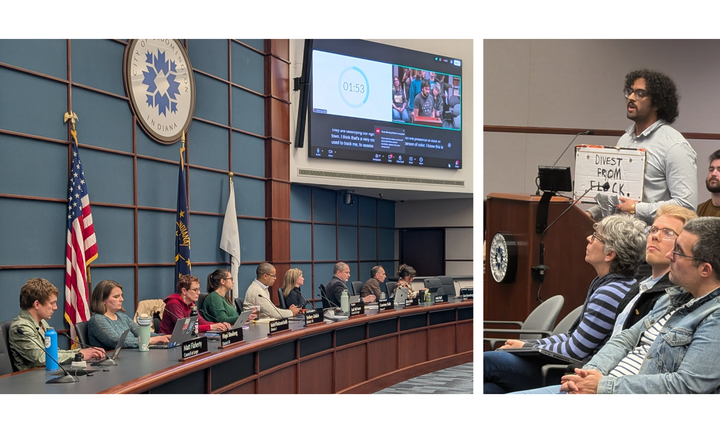
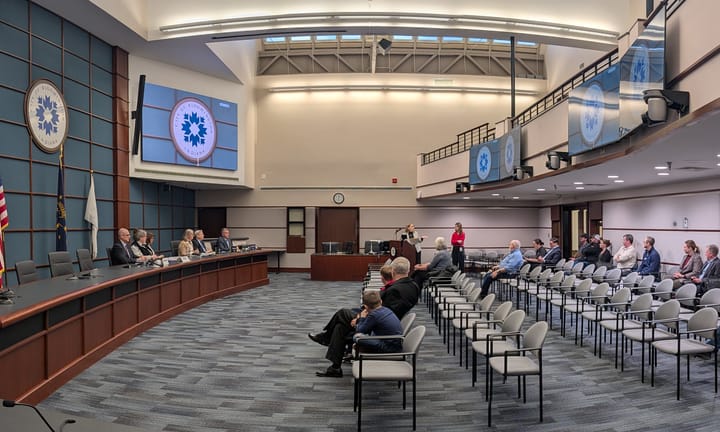

Comments ()